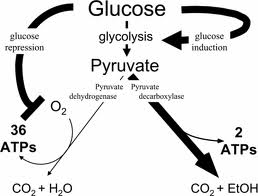Attention-Deficit/Hyperactivity Disorder (ADHD) is a complex neurodevelopmental condition characterised by persistent patterns of inattention, hyperactivity and impulsivity. The question of whether individuals are born with ADHD or if it develops later in life is multifaceted, involving genetic, environmental and neurological factors. This article aims to delve into the origins of ADHD, examining the interplay of these elements to provide a comprehensive understanding of the disorder.
Understanding ADHD
ADHD affects millions of children and adults worldwide, often manifesting in early childhood and continuing into adulthood. The disorder can significantly impact academic performance, social interactions and overall quality of life. The Diagnostic and Statistical Manual of Mental Disorders (DSM-5) outlines three primary presentations of ADHD: predominantly inattentive, predominantly hyperactive-impulsive and combined.
Genetic Factors
One of the most compelling pieces of evidence for the genetic basis of ADHD comes from family, twin and adoption studies. These studies have consistently shown that ADHD runs in families, with heritability estimates ranging from 70% to 90%. This means that a significant portion of the risk for developing ADHD can be attributed to genetic factors.
Researchers have identified several genes associated with ADHD. These genes are involved in the regulation of neurotransmitters, particularly dopamine, which plays a crucial role in attention and behaviour regulation.
However, no single gene causes ADHD; rather, it results from the interaction of multiple genes, each contributing a small effect. This polygenic nature of ADHD underscores its complexity and the difficulty in pinpointing a singular genetic cause.
Environmental Influences
While genetics play a substantial role, environmental factors also significantly contribute to the development and manifestation of ADHD. Prenatal and perinatal factors, such as maternal smoking, alcohol consumption and exposure to toxins during pregnancy, have been linked to an increased risk of ADHD. Low birth weight and premature birth are also associated with a higher likelihood of developing the disorder.
Early childhood experiences and environmental stressors further influence the development of ADHD. Factors such as exposure to lead, early childhood trauma and chronic stress can exacerbate ADHD symptoms. Additionally, parenting practices and family dynamics, while not causing ADHD, can impact the severity and management of symptoms.
Neurological Factors
Advances in neuroimaging have provided valuable insights into the neurological underpinnings of ADHD. Studies have shown that individuals with ADHD often exhibit differences in brain structure and function compared to those without the disorder. Key areas of the brain involved in ADHD include the prefrontal cortex, basal ganglia and cerebellum.
The prefrontal cortex, responsible for executive functions such as decision-making, impulse control and attention, is often underactive in individuals with ADHD. The basal ganglia, which regulate movement and reward processing, and the cerebellum, which coordinates motor activity, also show structural and functional abnormalities in ADHD patients. These neurological differences help explain the characteristic symptoms of ADHD and underscore the disorder’s neurobiological basis.
The Interplay Of Genetics And Environment
The development of ADHD is best understood through the lens of the gene-environment interaction. While genetic predispositions provide the foundation for ADHD, environmental factors can influence the expression and severity of symptoms. For example, a child with a genetic susceptibility to ADHD may exhibit more pronounced symptoms if exposed to environmental stressors such as prenatal toxins or early childhood adversity.
Epigenetics, the study of how environmental factors can alter gene expression without changing the DNA sequence, also plays a role in ADHD. Epigenetic modifications can influence how genes related to neurotransmitter regulation and brain development are expressed, potentially contributing to the onset and progression of ADHD.
The Importance of Early Identification and Intervention
Understanding the origins of ADHD is crucial for early identification and intervention. Recognizing symptoms early in life allows for timely ADHD support and management, which can significantly improve outcomes.
Interventions may include behavioural therapies, educational accommodations and, in some cases, medication. These strategies can help individuals with ADHD develop coping mechanisms, improve their functioning and enhance their quality of life.
The Bottom Line
Given the evidence from genetic, environmental, and neurological research, it can be concluded that individuals are not simply “born with ADHD” in a deterministic sense. Instead, they may be born with a genetic predisposition that makes them more susceptible to developing ADHD, particularly when influenced by certain environmental factors. The manifestation of ADHD symptoms results from a dynamic interplay between inherited genetic factors and environmental exposures. There are new technologies and lifestyle changes that can help with ADHD.
ADHD is a multifactorial disorder with genetic, environmental and neurological components. While genetic predispositions play a significant role, environmental influences and brain development are also crucial in shaping the disorder’s onset and expression. By acknowledging the complexity of ADHD’s origins, we can better appreciate the need for comprehensive approaches to diagnosis, intervention and support, ultimately improving the lives of those affected by this condition.








